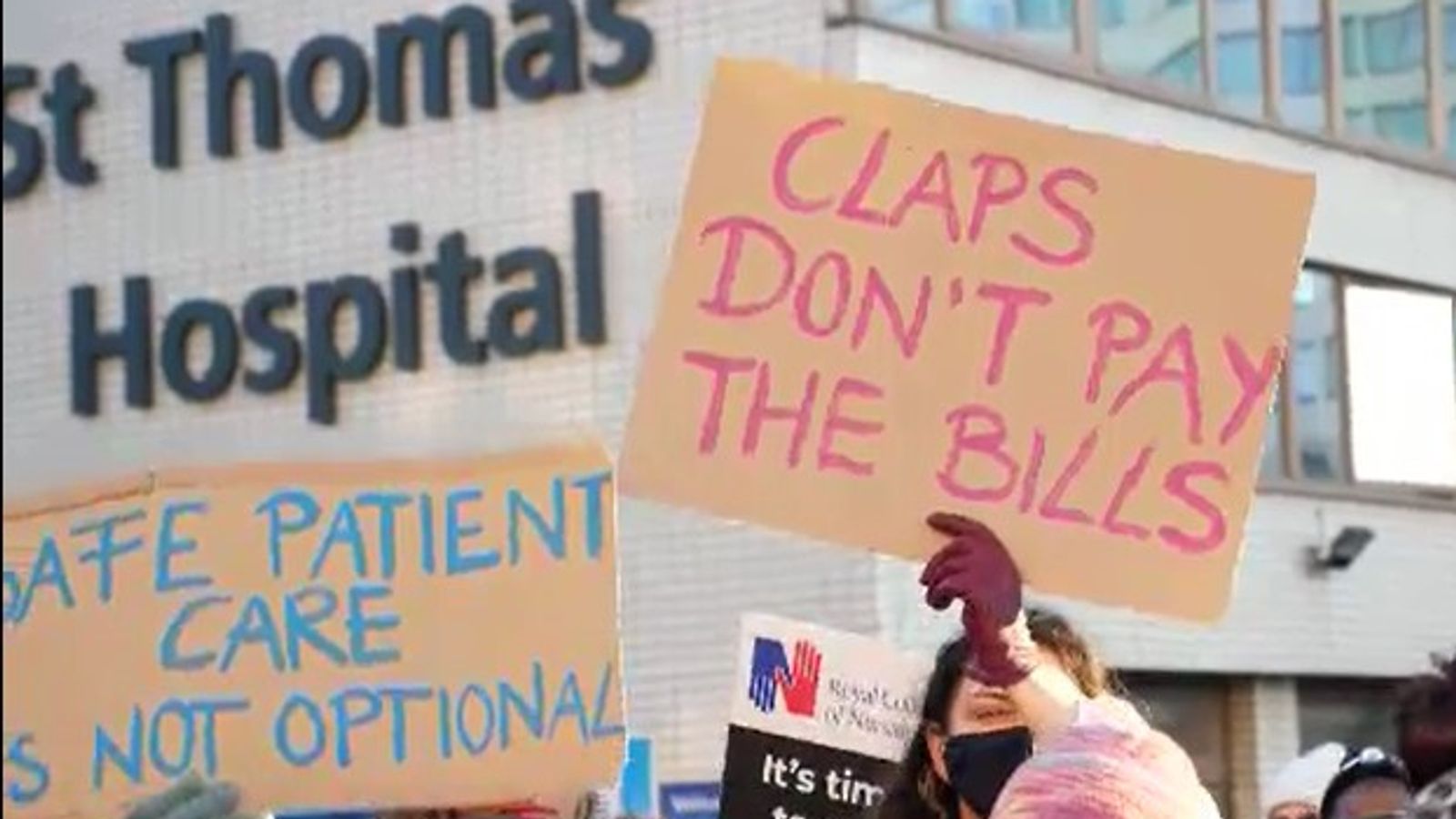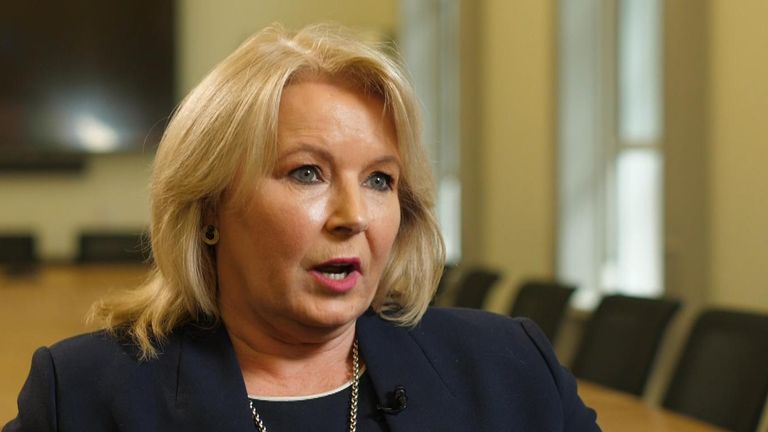Giving in to nurses’ pay demands would “stoke” inflation and have a “huge impact” on public finances, a minister has told Sky News.
Oliver Dowden said he would “dearly love for the government to be able to write the cheque” and meet the call of the Royal College of Nursing (RCN), which wants a pay rise of at least 17%.
But he said the government remains “resolute” and repeated a claim that giving in to public sector unions over pay demands would cost every household an extra £1,000 a year.
Challenged on the numbers he presented – as independent forecasters have predicted much lower inflation of 5.5% next year – Mr Dowden said “that’s a totally different proposition”.
But he said it was right for the government to follow the recommendations of independent pay review bodies, who suggested a pay rise for nurses of around 4% over the summer – before inflation soared – to “take the politics out” of the discussion.
Nurses took the first strike action in their history this week when they staged a walkout on Thursday, with another set for Tuesday and more possible in 2023 if their demands are not met.
The head of the RCN, Pat Cullen, suggested the strikes could have been called off if the government moved over the pay settlement.
But so far, Health Secretary Steve Barclay has refused to put wages back on the table in negotiations, sticking to the pay review’s recommendation.
Speaking to Sky News, Mr Dowden said: “I would love to be able to sit here now and say to you and say to all of your viewers – and particularly say to those nurses – we will give you a 19% pay rise.
“The reason why that can’t be done is because of the costs to public finances.
“This is not my money. It’s not the government’s money. It’s your viewers’ money that is being spent [and] as government ministers, we have to balance up very difficult choices.”
He added: “We’re trying to be reasonable in relation to this. However, we do have to balance off the wider public considerations in that in relation to this. This is what you would expect ministers to do in this kind of scenario.
“And I have to say to the union leaders, we will continue to reasonable, but we also must be resolute in terms of protecting the wider public finances.”
With strikes set for every day in the run-up to Christmas, from railway workers to Border Force officials and beyond, Mr Dowden urged all unions to call off industrial action “to give people a break over Christmas”.
But his tone was quite different to that of Prime Minister Rishi Sunak, who today accused union bosses of being the “Grinches [who] want to steal Christmas”.
Writing in The Sun on Sunday, Mr Sunak made no mention of nurses or ambulance drivers, who are also set to go on strike.
But he singled out rail workers as “causing misery for millions” with what he said were “cruelly-timed” walkouts.
Labour’s Stephen Kinnock called the PM’s language “incendiary”, telling Sky News the government is “spoiling for fight” with the unions.
“I think the government needs to stop all the rhetoric, the empty posturing and sowing the seeds of division and actually now needs to start finding a constructive solution so that we can get people back to work in a way where they feel valued and where they feel that there is a real future for them in those jobs,” he added.
Armed Forces ‘no substitute’
Meanwhile, union chiefs and senior military officials have raised concerns about plans to bring in the Armed Forces to fill in the gaps caused by industrial action, specifically replacing ambulance drivers and Border Force staff.
Sara Gorton, Unison’s head of health, warned the military is “no substitute” for qualified ambulance staff, while Nathan Holman, from GMB, said bringing in “untrained” personnel would be a “hindrance” rather than a help.
And the head of the armed forces, Admiral Sir Tony Radakin, warned it was “perilous” to expect military personnel to be used routinely to cover for strikes.
Mr Dowden said the government had “significant concerns” when it came to the ambulance driver strikes and again urged the unions to call them off.
He added: “We are working incredibly hard to make sure, particularly in the most urgent cases, people are able to get that ambulance.
“But the only way we can remove all of this impact, the only way is this to be called off. This is not a situation that we want to be in.”

